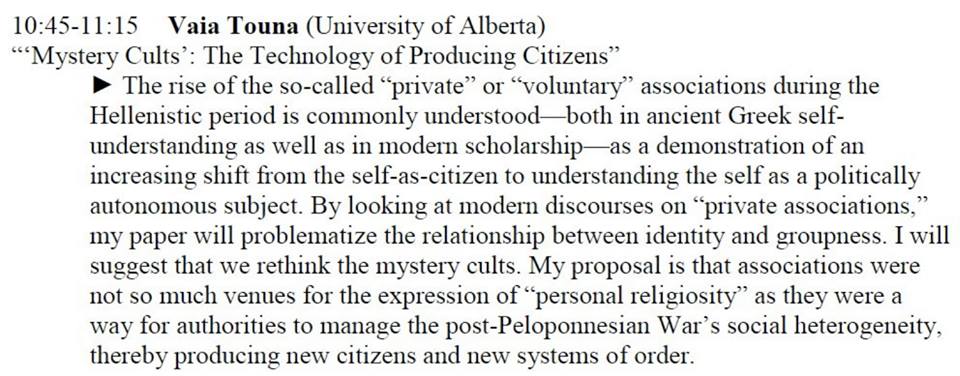“On the Spot” backs members of Culture on the Edge into a corner to talk about their backgrounds, their ongoing work, and what might be gained by an alternative understanding of how identity works.

Q: Vaia, you focused some of your scholarship on ancient Greek texts both before and after beginning to read social theory – could you give us an example of how the theorists you’ve read have affected the way that you now approach these ancient materials?
A: My Masters was on Euripides’ tragedy Hippolytus and the notion of Meden Agan (i.e., moderation) and how it was understood in the 5th century BCE Athens. In order to write my thesis back then, of course, I read a lot of secondary literature and commentaries on the play, heavily descriptive works on the “religion” of the ancient world, and of course how ancients might have thought/felt and the universality of their meanings that (we today presume) stay unalterable in their texts—meanings that modern scholars, with the right tools, will be able to retrieve just like the archaeologists dig up and unearth the past. I did all that in my effort to better understand and recreate that ancient world. This approach to the ancient material has changed once I started reading theorists like Russell McCutcheon, Jonathan Z. Smith, Bruce Lincoln, Michel Foucault, and others; now my data are not just these ancient texts (whether literature, or statues, vases, etc.) but also the commentaries that previously served as my “way into” the ancient world, for I came to realize that the world I was entering was the world and time period of those scholars. Continue reading “On the Spot with Vaia Touna”

 In early June 2013, Culture on the Edge’s
In early June 2013, Culture on the Edge’s